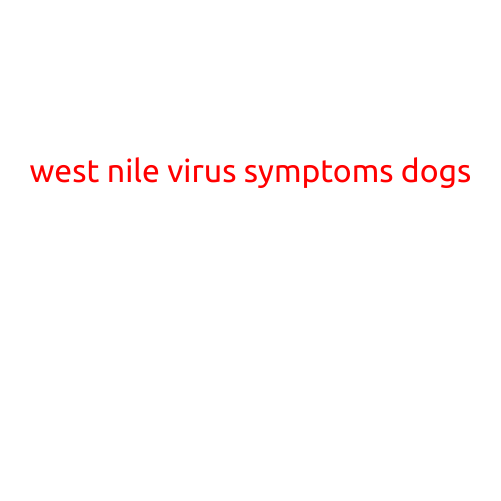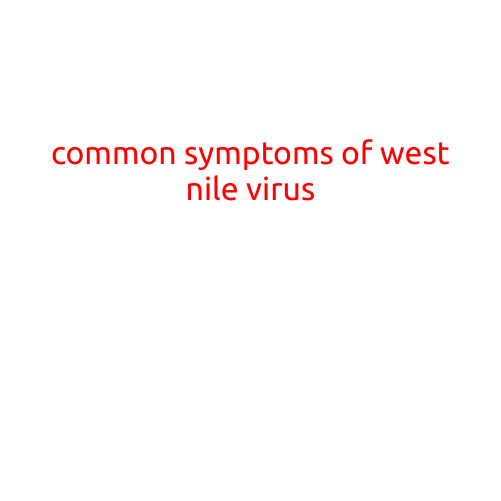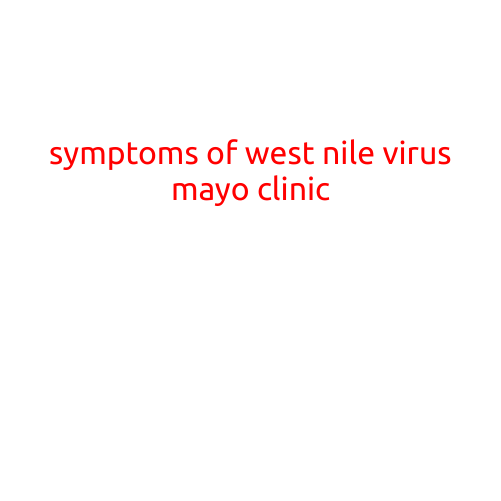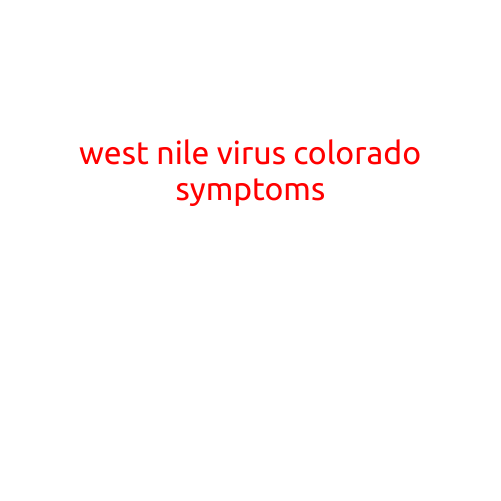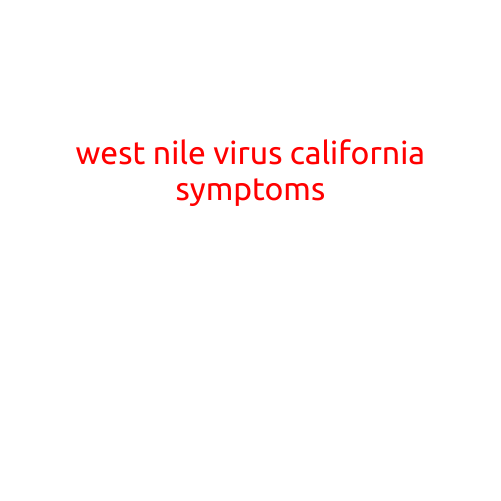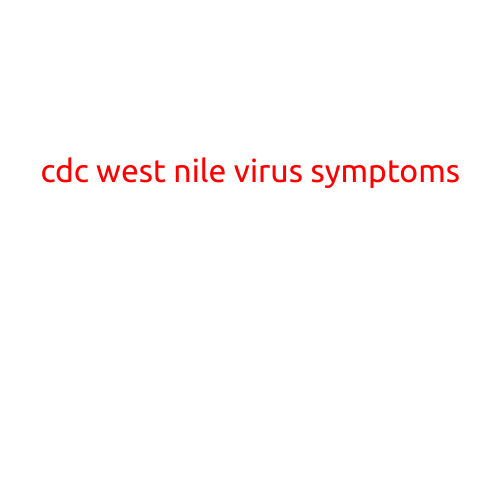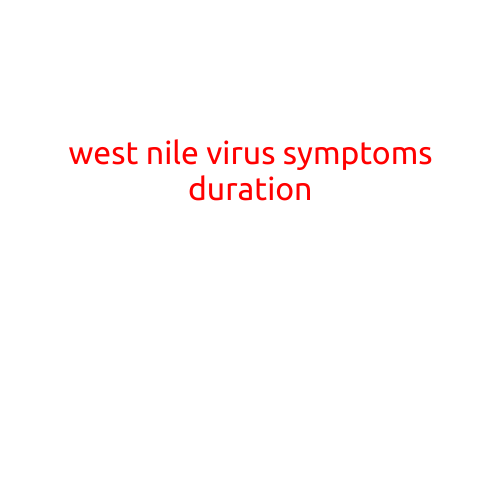
West Nile Virus Symptoms and Duration: What You Need to Know
West Nile virus is a mosquito-borne disease that has become a significant public health concern in many parts of the world. The virus is transmitted to humans through the bite of an infected mosquito, and in most cases, it causes mild symptoms or no symptoms at all. However, in rare cases, West Nile virus can cause serious complications, including encephalitis (inflammation of the brain) and meningitis (inflammation of the lining around the brain and spinal cord).
Mild Symptoms of West Nile Virus
The majority of people infected with West Nile virus do not experience any symptoms. However, in some cases, people may experience mild symptoms, which can include:
- Fever
- Headache
- Muscle weakness
- Rash
- Swollen lymph nodes
- Swollen spleen
These mild symptoms usually begin within 3 to 14 days after being bitten by an infected mosquito and typically resolve on their own within 10 days.
Severe Symptoms of West Nile Virus
In rare cases, West Nile virus can cause more severe symptoms, including:
- Encephalitis (brain inflammation): Symptoms may include confusion, disorientation, seizures, and tremors.
- Meningitis (brain and spinal cord inflammation): Symptoms may include stiff neck, fever, headache, and confusion.
- Neurological symptoms: Some people may experience neurological symptoms, such as paralysis, muscle weakness, or numbness.
Severe symptoms usually begin within 7 to 10 days after being bitten by an infected mosquito and may require hospitalization.
Duration of Symptoms
The duration of West Nile virus symptoms can vary depending on the severity of the illness.
- Mild symptoms: Typically last 10 days or less
- Severe symptoms: Can last several weeks or even months
- Neurological symptoms: May persist for months or even years
Treatment
There is no specific treatment for West Nile virus, but treatment is focused on managing symptoms and reducing the risk of complications. In severe cases, hospitalization may be necessary to provide supportive care, including:
- Intravenous fluids
- Oxygen therapy
- Pain management
- Anticonvulsant medication for seizures
Prevention
Prevention is key in avoiding West Nile virus. The best way to prevent the virus is to:
- Avoid mosquito bites: Wear protective clothing, apply insect repellent, and avoid areas with high mosquito activity.
- Eliminate breeding sites: Remove standing water around your home to prevent mosquitos from breeding.
- Vaccination: A vaccine is available for people who are at high risk of getting West Nile virus, such as laboratory workers who work with the virus.
Conclusion: West Nile virus is a serious public health concern that can cause mild to severe symptoms. Understanding the symptoms and duration of the illness can help healthcare professionals and individuals take necessary steps to prevent and manage the disease. If you experience any symptoms of West Nile virus, it is important to seek medical attention immediately.
